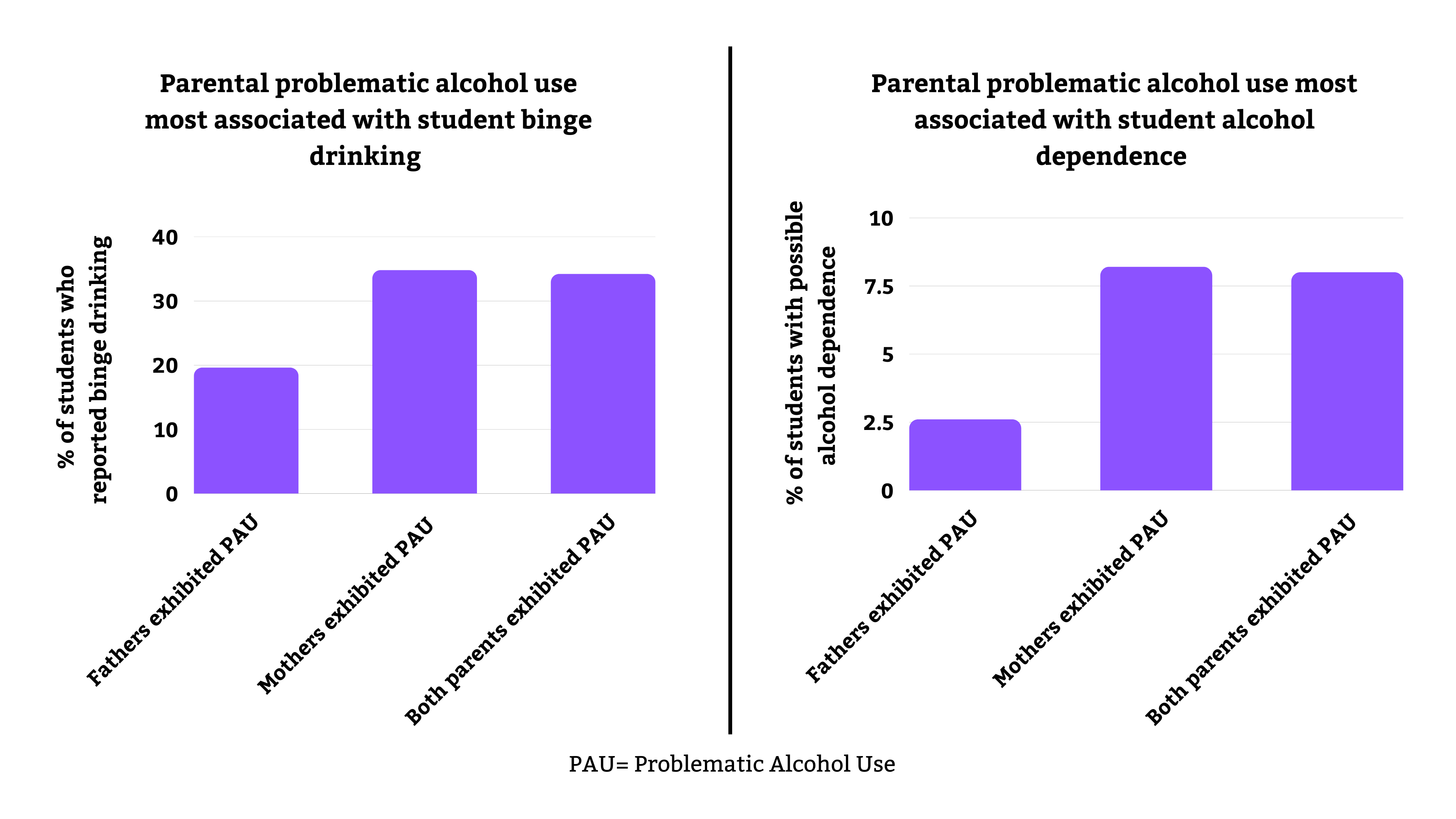There are several risk factors that influence adolescent alcohol use, one of them being observed parental behaviors. In the United States, one out of four minors are introduced to alcohol use by a family member. Similarly, in Mexico, sixty percent of individuals aged 18-65 have a parent who routinely drinks. Adolescent exposure to alcohol use increases the probability that a person will develop a substance use problem in the future. This week, The DRAM reviews a study by Raquel Mondragón Gómez and colleagues that assessed whether parental alcohol consumption puts students at greater risk for binge drinking and developing alcohol dependence.
What was the research question?
Is perceived parental alcohol use associated with adolescent binge drinking or alcohol dependence?
What did the researchers do?
In 2014, the researchers conducted a secondary analysis of the National Survey of Student Drug Use, which surveyed 114,364 junior high and high school students from the 32 states of Mexico using random, representative, stratified, systematic cluster sampling. In this in-classroom survey, students responded to items related to sociodemographics, their binge drinking and alcohol dependence (if applicable), and their perceptions of their parents’ binge drinking and problematic alcohol use. The researchers used logistic regression models to explore whether problematic parental alcohol use, parental binge drinking, or any of the sociodemographic factors were associated with student binge drinking or alcohol dependence.
What did they find?
Students exposed to parental alcohol use were at greater risk for binge drinking and developing alcohol dependence than students who were not exposed. When mothers and both parents exhibited problematic alcohol use, the subsequent impact of student binge drinking and alcohol dependence was greater than the impact of problematic drinking only on the part of fathers. Also at increased risk were high school boys with high socioeconomic status who were also employed. The Figure provides more detail on these findings.
Figure. Problematic alcohol use by mothers and by both parents were associated with greater risk for students’ binge drinking and potential alcohol dependence, compared to fathers’ problematic alcohol use. Click image to enlarge.
Why do these findings matter?
These findings are similar to those reported in studies conducted in other countries, implying that males who have a familial history of alcohol use are at higher risk for developing their own issues with alcohol. This is especially true when their mothers are the parental figures exhibiting this type of problematic behavior. This suggests that the impact that maternal figures have on the family structure (e.g., raising children and family cohesion) have a greater influence on the child’s behavior and upbringing, highlighting the need for substance use treatment and interventions directed towards maternal figures.
Every study has limitations. What are the limitations in this study?
The variable measuring problematic alcohol use is subject to bias, as it was based on the students’ perceptions of their parents’ alcohol use. In many Mexican families, women might hide their drinking, leading to an underestimation of consumption, whereas fathers might be more open about it, leading to overestimation.
For more information:
The National Institute on Alcohol Abuse and Alcoholism offers tips and resources for people struggling with problem drinking. For additional drinking self-help tools, please visit the BASIS Addiction Resources page
— Nakita Sconsoni, MSW
What do you think? Please use the comment link below to provide feedback on this article.





